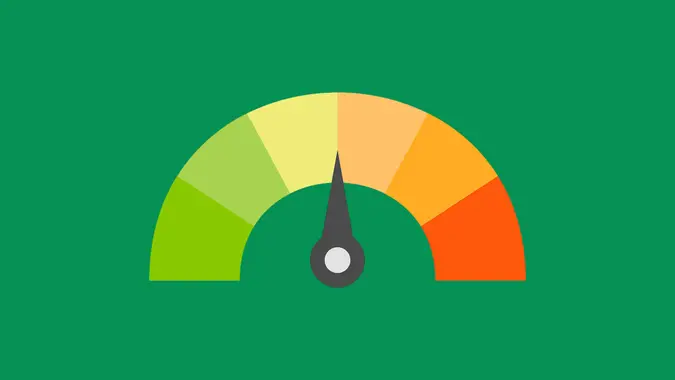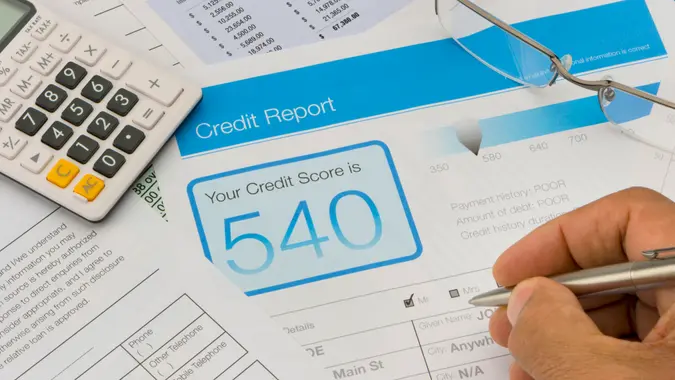What is on My Credit Report?

Commitment to Our Readers
GOBankingRates' editorial team is committed to bringing you unbiased reviews and information. We use data-driven methodologies to evaluate financial products and services - our reviews and ratings are not influenced by advertisers. You can read more about our editorial guidelines and our products and services review methodology.

20 Years
Helping You Live Richer

Reviewed
by Experts

Trusted by
Millions of Readers
Your credit report contains a great deal of vital information. This information can be used by many different sources for a number of things, such as applying for a mortgage or leasing a car.
Credit bureaus provide information such as your employment history, payment history, inquiries and public records so that companies know whether or not you are a secure candidate for a loan, lease or other contract.
Why are things like my employment history on my credit report?
If you are applying for a loan, banks and other institutions need to know whether or not you will be able to pay it back. By checking your employment and payment history, they can tell that you are financially reliable.
If you have held a steady job and pay your bills on time, this shows that you are more likely to be a responsible applicant. Also, this can help determine certain lending rates, such as a mortgage rate. People with higher credit scores are more likely to receive lower rates based on these histories.
If you have filed for bankruptcy or have had a tax lien, these are matters of public record and are also included in your credit report. All of this information influences your credit score.
You should know who’s been looking at your credit history
If someone has inquired about your credit file in the last six months, you have a right to know about it.
Most companies and institutions have an obligation to let you know if they have inquires about your credit file. If you feel that you have not been provided with this information, a quick check with one of the big three credit bureaus should clear up any questions you may have.
It is important to know what is in your credit report. By providing information such as public records, employment and payment histories, the credit bureau can be sure that the companies who need to access your credit file have all the facts they need.
 Written by
Written by 






















